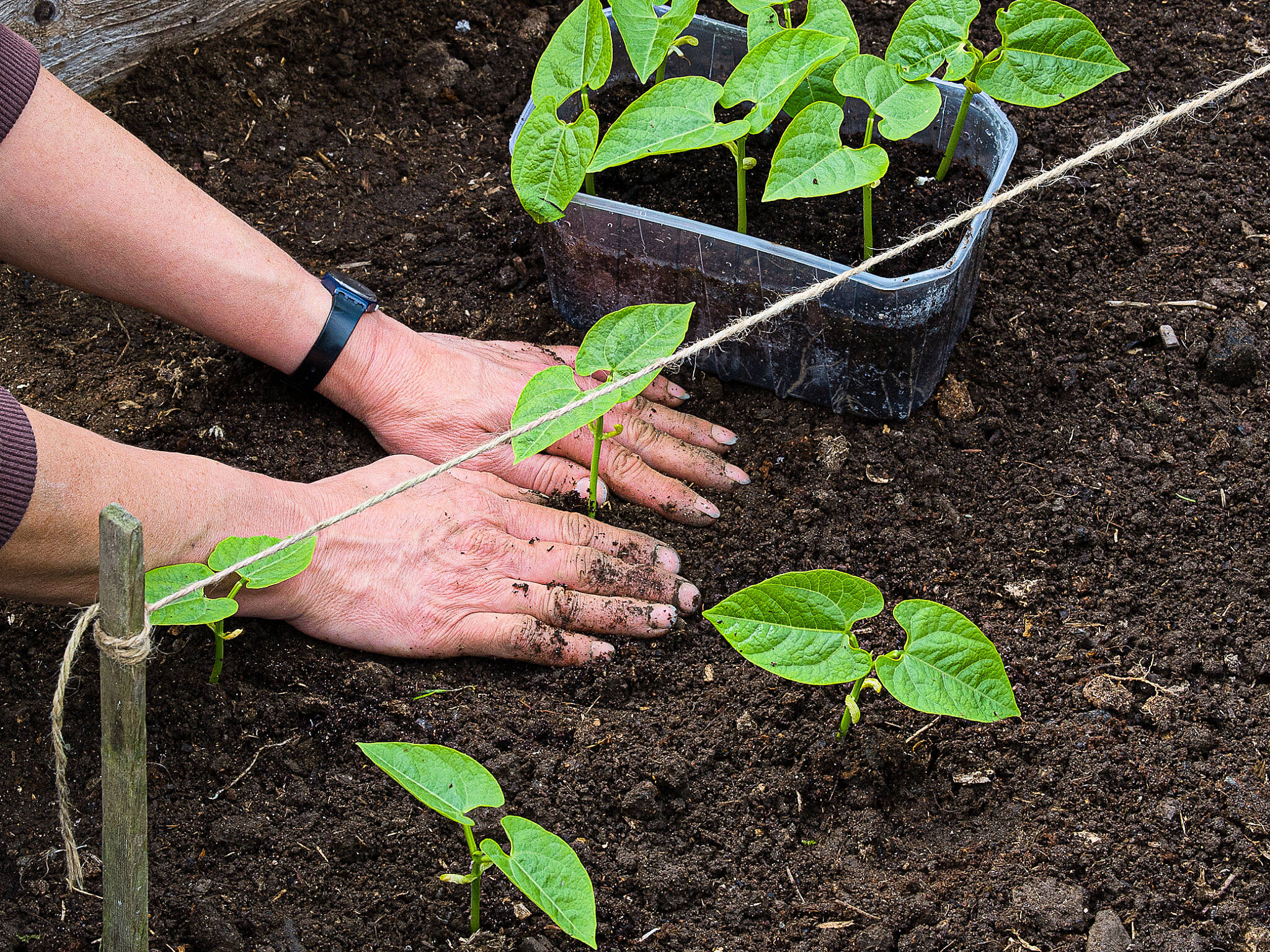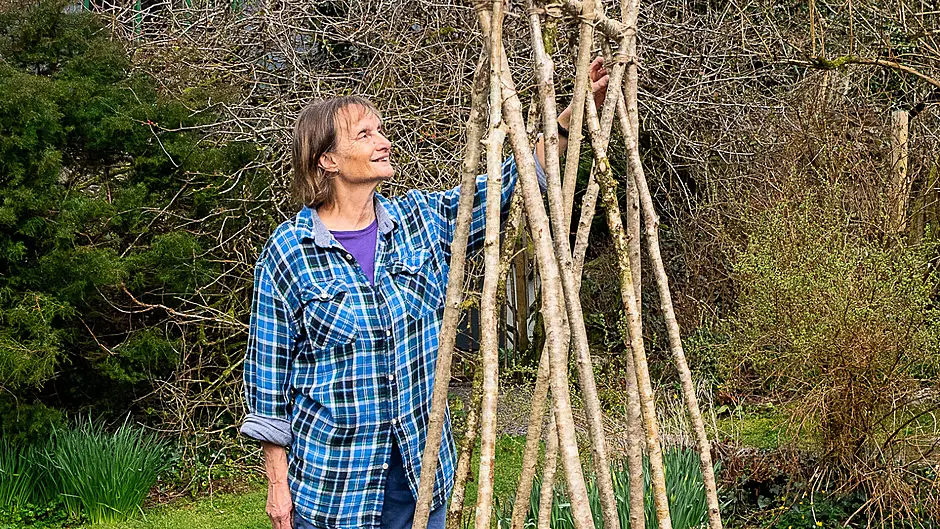BY JOYCE RUSSELL
APRIL is a great month to start a kitchen garden. Lots of seeds can be sown now and you can also buy a wide range of small plants.
You don’t need to have a huge patch – some raised beds, or even a few large containers, can get you started with some favourite fruits and vegetables. You can even dot a few veggies around the flower beds, provided there is enough space for plants to thrive.
There are a few basic needs that apply: provide a nutrient rich growing medium; enough light; water when needed; and don’t crowd plants too close. Protect against pests, like slugs and snails, and pay attention on a regular basis so you spot any problems and can address them before they get worse (read more about this in ‘Protect Against Pests’ in this magazine). If anything fails, then learn from it and replace the plant with something else. If you have a small garden you can keep sowing and planting as needed to fill any empty space.
Enrich the soil
Add compost or manure if needed – you can buy bags of both if you need to add nutrients to a poor soil. A fine aerated soil is better than a heavy compacted one and many west Cork soils are improved by a scatter of lime. You will learn how well your soil drains and how often you need to water as the weeks move on. Consider raised beds if suitable.
Start sowing seeds
 Recycle fruit tubs for sowing beans.
Recycle fruit tubs for sowing beans.
• Choose wisely if you have limited space. Grow things that you really like and are at their best fresh-picked. Some plants like broccoli and brussels sprouts can occupy a bed for many months and, although perfectly delicious, they are only productive for a few final weeks. Find a corner for a few plants if you love them, but otherwise prioritise crops with a short growing period and long cropping time.
• Courgettes, salad leaves and spinach are all quite easy to grow. Peas and beans have a small enough footprint compared to height and you can even grow them against a wall. Kale and cabbage plants can go in after an earlier crop is lifted, as can Swiss chard.
• Sow direct in the ground or in tubs of good compost to plant out later. You may well have a better success rate starting some things in pots. Carrots, parsnips and rocket should be sown direct where they will grow – they don’t like being moved around and if you are a beginner, carrots can be tricky to grow. Tomatoes can do well in growbags against a sheltered sunny wall, but start plants in pots or buy them in and don’t plant out until all risk of frost is passed.
• Cover small seeds with a thin layer of compost. Larger seeds can go a little deeper in the soil. Water lightly so there is enough moisture for seeds to germinate and grow – too wet a compost can lead to rot.
• Sow in pots or recycled fruit tubs. I like to reuse what I can and clear plastic fruit tubs make excellent pots for starting seeds. Deep ones are perfect for peas and beans.
Pot on or plant out
 Plant out pot-raised plants when conditions allow.
Plant out pot-raised plants when conditions allow.
If you start seed in pots and trays in can take a few days, or sometimes 2-3 weeks, for small shoots to appear. These grow quickly and small plants may soon be too big for their pots. Don’t let any plant get root-bound or use up all the nourishment in the compost. Move plants on into bigger pots if needed or plant them out into the garden soil.
Plant some potatoes
 Fill a raised bed with some potatoes.
Fill a raised bed with some potatoes.
It’s worth growing a few potatoes – they taste so much better than any that you buy in. Even if you don’t have the land to grow a year’s supply, a one metre square raised bed will produce some yummy potatoes for you to enjoy. Choose an early variety (Charlotte is my favourite) and place at 30cm apart. Push each potato into the soil with the sprouting end facing upwards. You can cover them with manure or compost, or use another nitrogen rich feed, and then pile more earth on top. If you want less work, you can simply add a layer of grass clippings each time you mow. Potatoes turn green if exposed to light so make sure the growing potatoes are covered at all times.
Provide support
Tall growing crops make good use of space. Make sure these are supported so they don’t blow over in a strong wind. Use canes or poles to make bean frames and wire or twiggy branches to support peas. You can fix wires or trellis against a wall or bang in a stout stick to tie in an individual tall plant. Good strong and stable supports will help prevent young fruit trees from rocking in wind.
Cover plants if needed
We can get some hard frosts in April and many young plants will suffer a setback. Potato foliage may be killed and onions and garlic are more likely to bolt if they have been frosted. Horticultural fleece, or clear polythene, make excellent covers – weight the edges down safely and you will trap in some warmth for the crops underneath.
A few pots
 Herbs can do well in pots.
Herbs can do well in pots.
If you don’t have room for another bed in the garden then consider what you can grow in pots. A wide range of herbs will do well in containers and, provided you keep them watered, they will thrive all summer long. Move into larger containers of fresh compost and perennial herbs should grow on for another few years. Strawberry plants can do well in 20cm pots.
If kept watered, fed and netted against birds, they can produce a delicious crop. Grow them in a sunny spot and protect against slugs. Try growing three climbing beans in a bucket with drainage holes in the bottom. Put in three canes for the beans to climb up and you should get some good pickings in a few weeks’ time.
This article originally appeared in our popular Home & Garden supplement – subscribe now to read the full supplement via our ePaper








